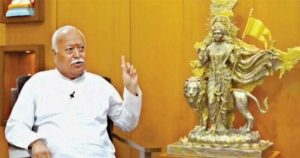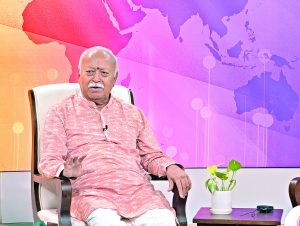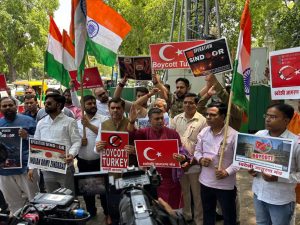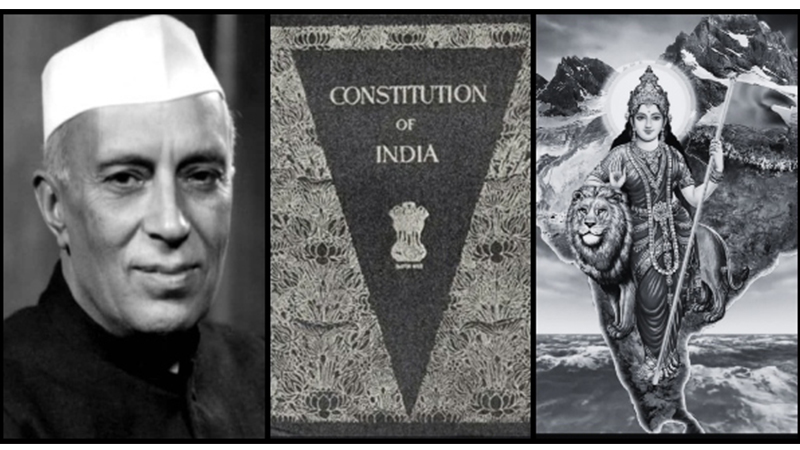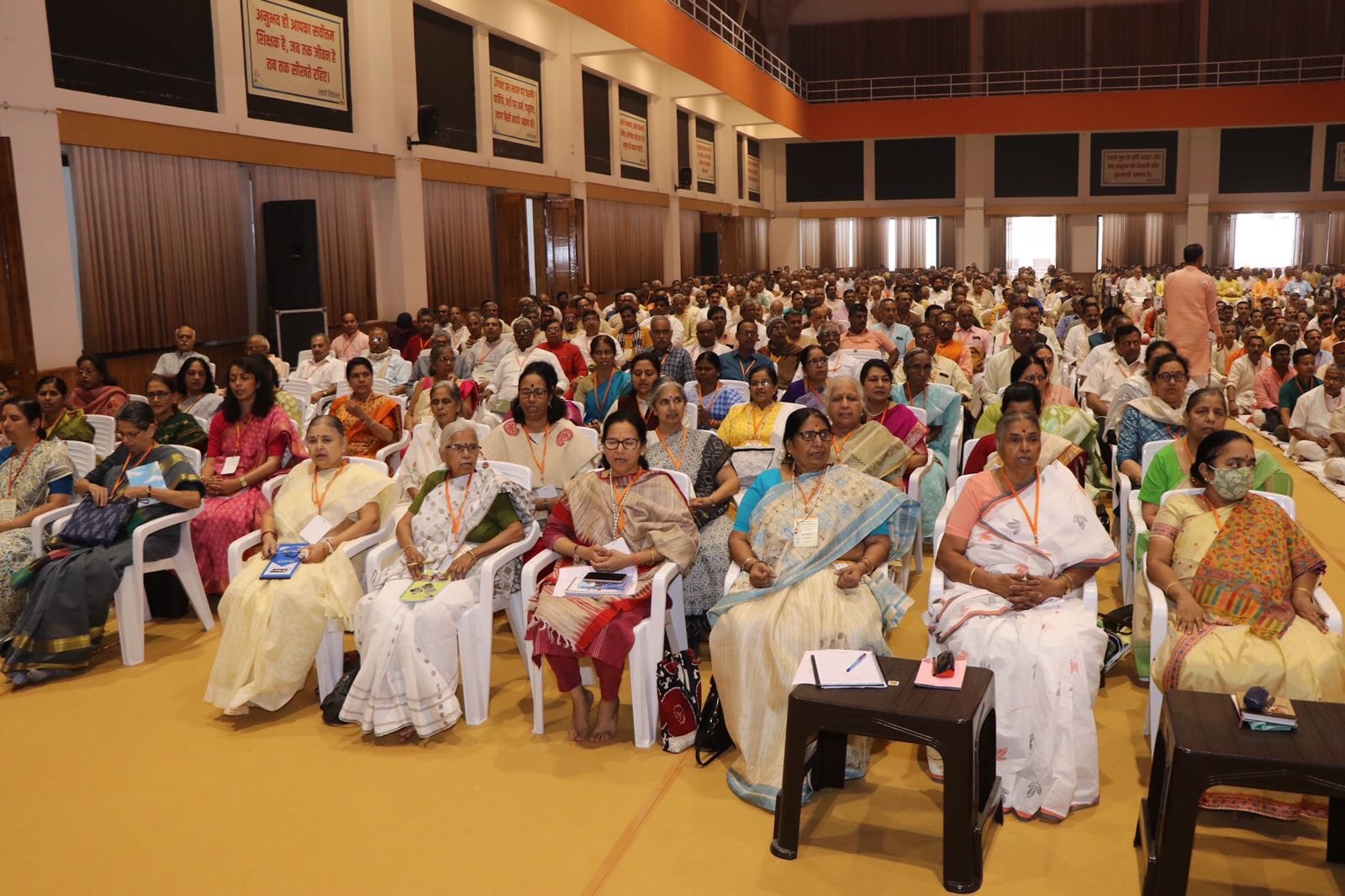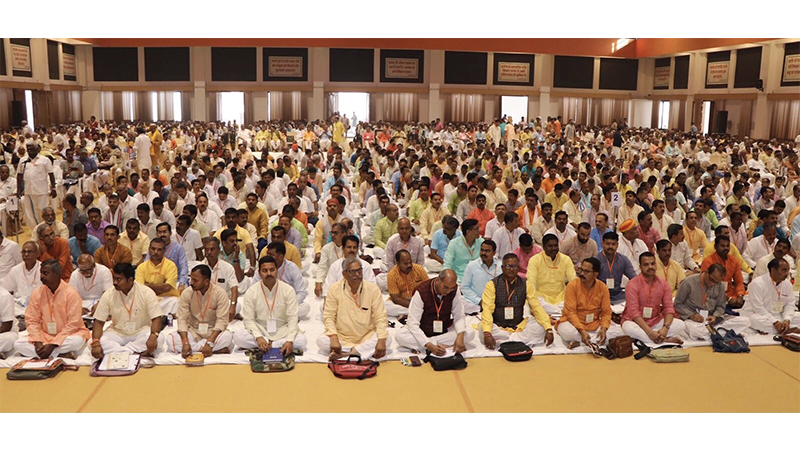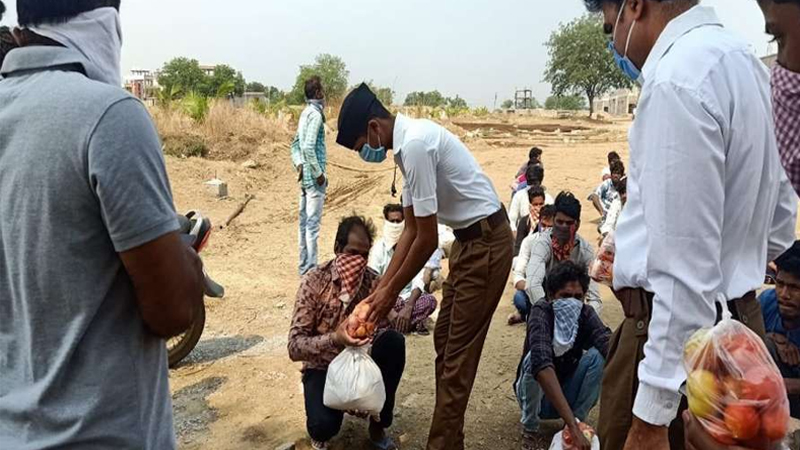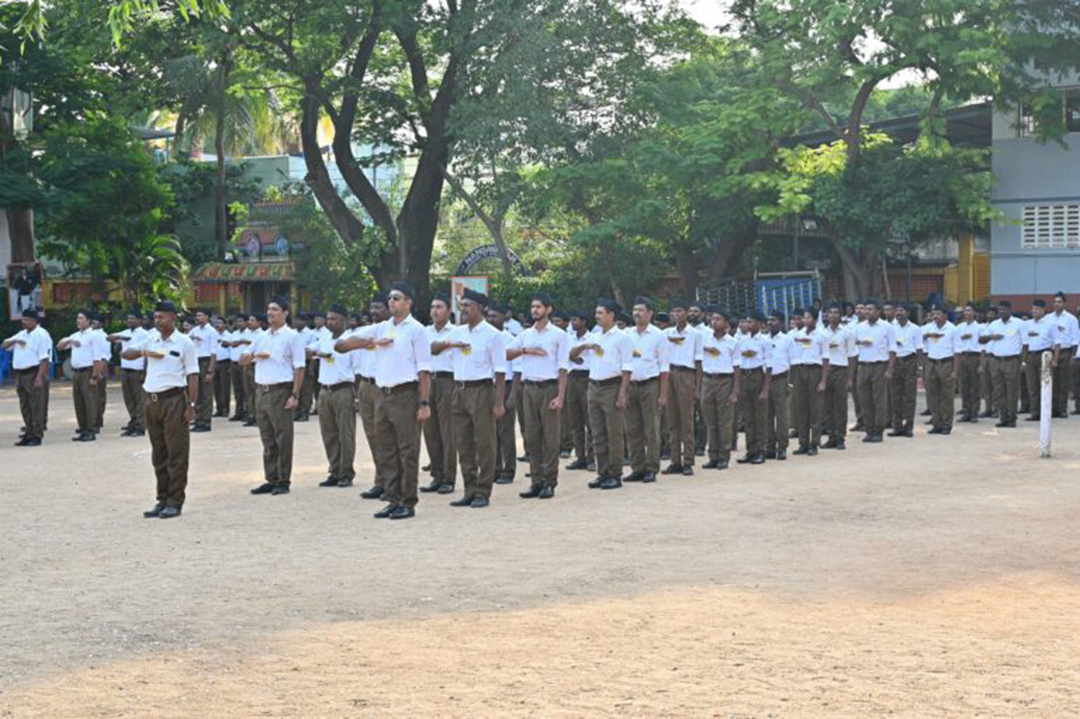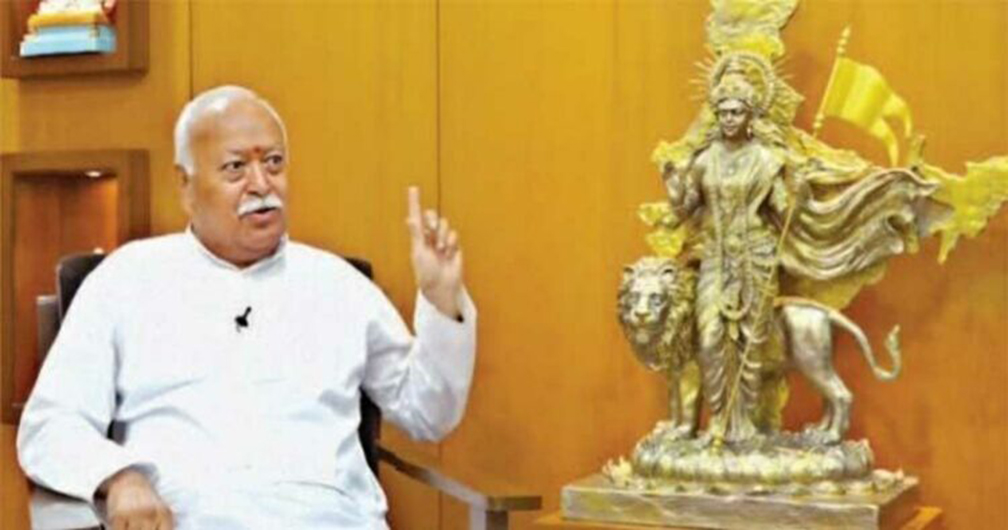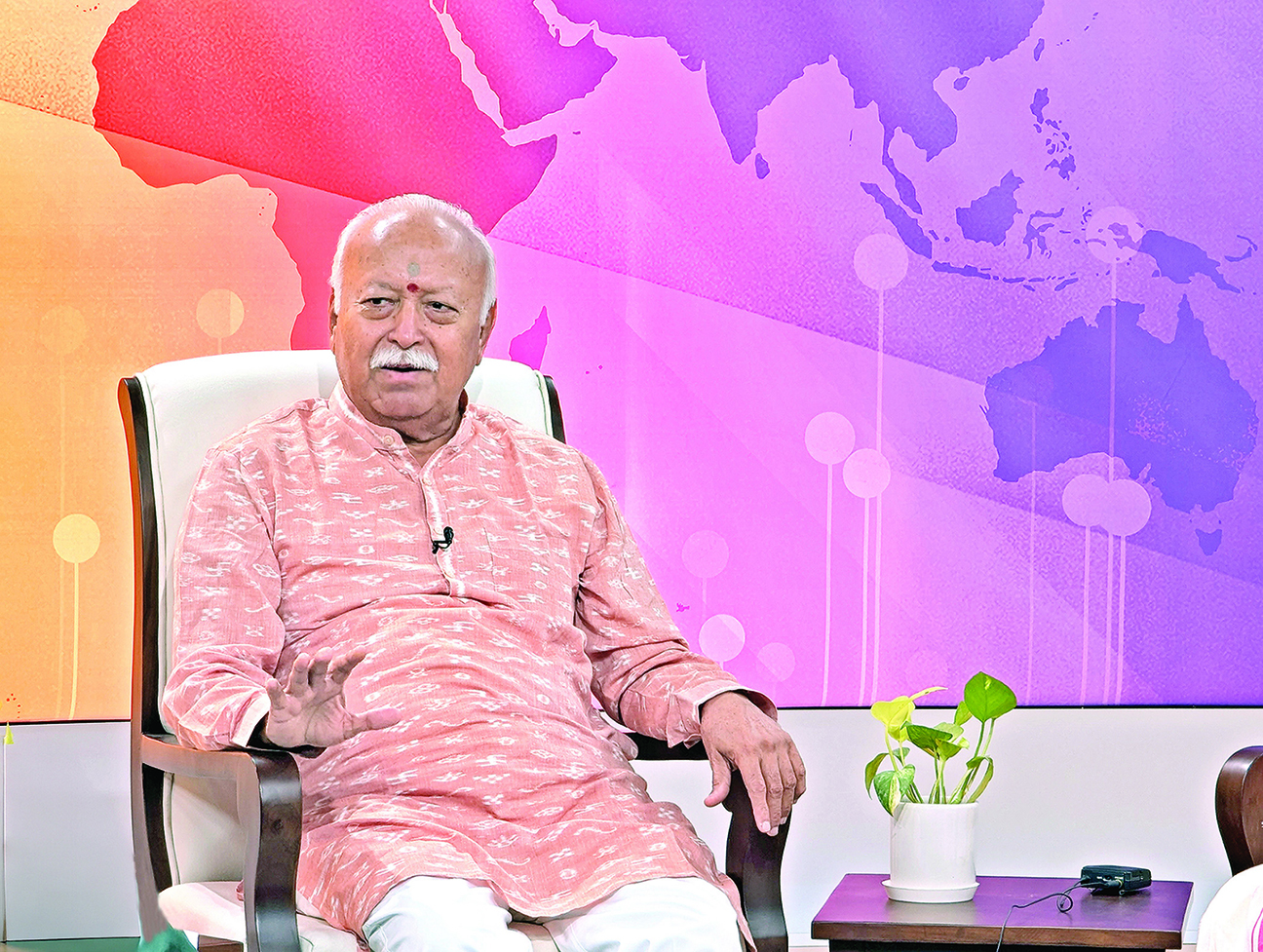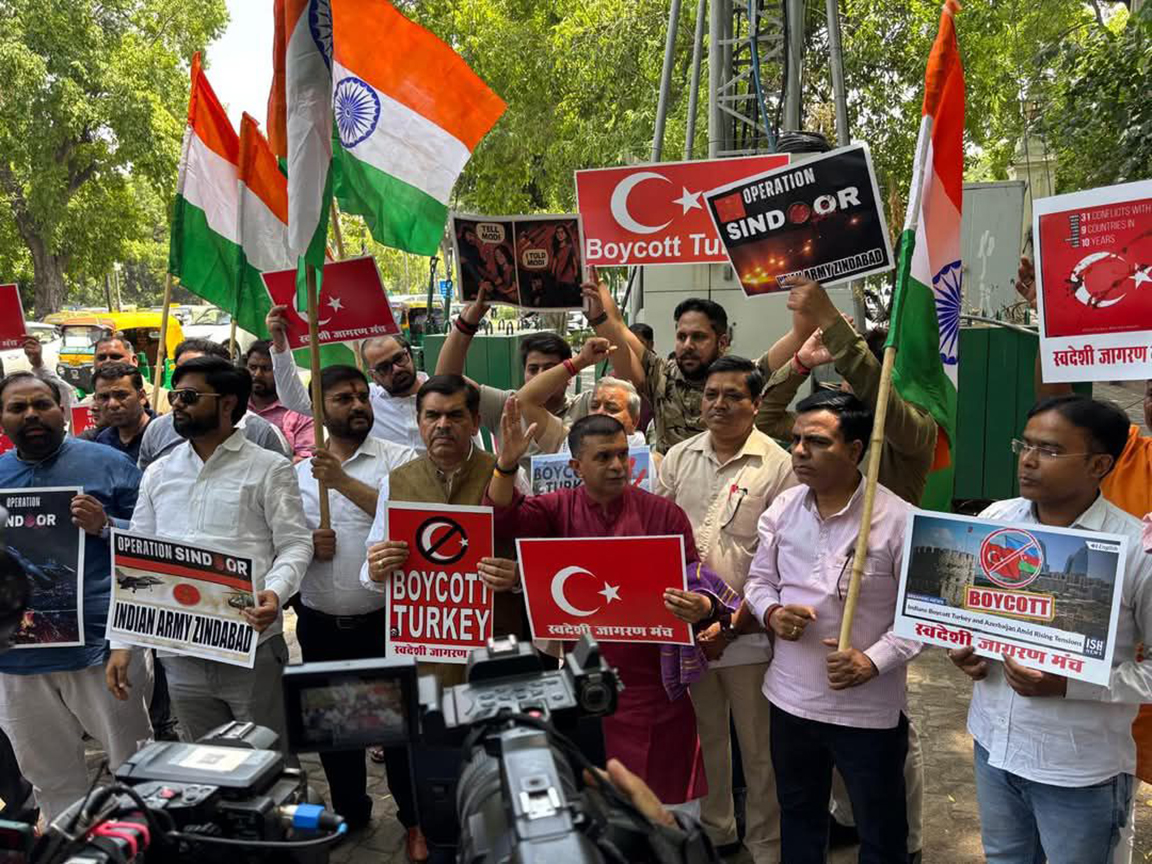K.S. Sudarshan: The Fifth RSS Chief – A Brief Biography
Updated: February 4, 2023 5:56
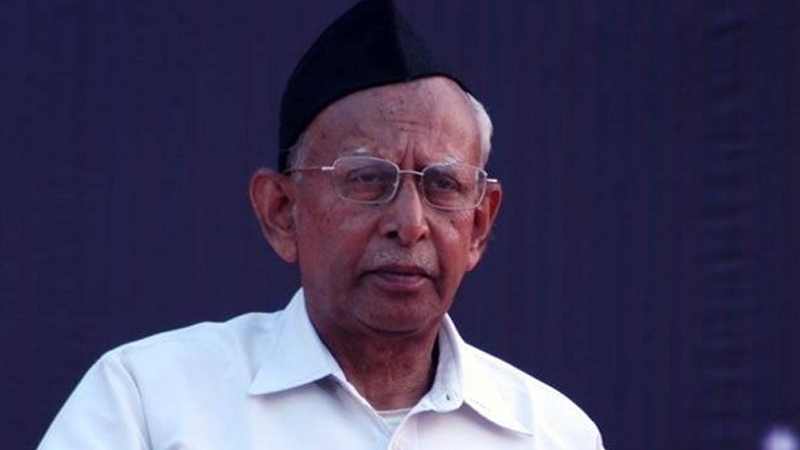
The Fifth RSS Chief – Kuppahalli Sitaramayya Sudarshan – hailed from Mandya District in Karnataka. He served as RSS Sarasanghchalak, the Chief of the Organisation from 2000 to 2009 when he stepped down due to health and handed over the charge of the organisation to Mohanrao Bhagwat, the sixth and the present RSS Chief.
The fifth RSS Chief was known for his sharp intellect, wisdom and deep knowledge of wide range of subjects ranging from Hinduism to foreign affairs. He had the ability to assimilate the global and Indian trends at macro level and paint the big picture in a theoretical framework for even common Swayamsevaks.
His discourses were popular among even those who were not Swayamsevaks. Born on June 18, 1931 in Raipur (it was part of Madhya Pradesh at that time), Sudarshan joined the RSS Shakha at the age of nine.
He was a sharp student and finished his Bachelor of Engineering in Telecommunications (honours) from Sagar University. In 1954, he decided to become a fulltime worker of the RSS and became a Pracharak.
As a Pracharak, his first stint was in Raigarh district. At a fairly young age of 33, he became Prant (Province) Pracharak, of Madhya Bharat (Central India region) in 1964.
In 1969, when he was 38, he received the national responsibility as, Akhil Bharatiya Sharirik Pramukh (All India in-charge of physical activities). He was one of handpicked RSS cadre by the then Sarasanghchalak M.S. Golwalkar.
This was followed by a stint in the North-East (1977) and then two years later he took over as the Akhil Bharatiya Bouddhik Pramukh (All India in-charge of intellectual cell).
In 1990, he was appointed Sah-Sarkaryavah (Joint General Secretary) of the organisation. He has the rare distinction of having held both posts of Sharirik (physical exercises) and Bauddhik (intellectual) Pramukh (Chief) on different occasions. In 2000, he became Sarsanghchalak of RSS.
A strong votary of Swadeshi, he was one of the key ideologues of RSS. He breathed his last on September 15, 2012 at Raipur in Chhattisgarh.
Several national leaders expressed their condolences. Prime Minister Narendra Modi, who was the Chief Minister of Gujarat at the time of demise of Sudarshan, said about him, “He was blessed with a sharp mind, humorous nature and always known for his simple and disciplined life.”
Remembering Sudarshan, a senior former RSS functionary, wrote for Rediff.com, “In RSS Karyalayas (office-cum-residence), he made it an unwritten rule followed by all to only fill as much water in the glass as one is sure to drink. ‘Don’t waste water, don’t fill up the glass only to throw it into the wash-basin. Water is sacred and scarce,’ he would urge.”
He tried to persuade everyone he met to stop ostentatious marriages. Don’t go in for such celebrations, it’s a mockery of India’s poor millions and a blot on Hindu society. And so was his mission to fight female foeticide. We worship Lakshmi, Durga and Saraswati as stone idols but kill them in the womb, he said in a speech.
“Very often, whenever he happened to be in Delhi, he would come to the offices of Panchjanya and Organiser and discuss several contemporary issues with the editors. His knowledge of global affairs and their likely impact on India was awesome. His friends’ circle included diplomats, scientists, Vedic scholars, environmentalists and economists espousing the cause of Swadeshi.”
“He was fond of Atal Bihari Vajpayee’s poems and would recite many of them verbatim at several meetings. So, when a daily newspaper published his interview that created awkwardness between him and Vajpayee ji, he felt sad about it. And it goes to the credit of both leaders’ maturity that the bad blood was removed and relations normalised,” added this former RSS functionary.
Sudarshan is known to have studied Islam very closely. He was a respected figure in Islamic world also, busting the misconception yet again about the RSS and the Muslims.
A report in Dailybhaskar.com published a few days after Sudarshan’s demise sums this up: “Islamic organisation Jamaat-e-Islami Hind (JIH) has surprisingly praised former RSS Chief K. Sudarshan and deeply mourned his death.”
In an article published in the September 22 issue of JIH bi-weekly mouthpiece Dawat, “Why did they feel sad at his death?”, Chief Editor Rahmani wrote, “It is not known how sad the Sangh Parivar felt at the demise of K.S. Sudarshan.” But, the “Muslims, who on August 20 would have heard or read the news from Bhopal”, must have been sad.
Earlier, in Dawat’s September 1 issue, Rahmani had called Sudarshan one of the, “oldest and most important leaders” of the RSS and a well-educated person.
According to a Times of India report, Dawat’s chief editor Parwaaz Rahmani recounted how Sudarshan wanted to visit Bhopal’s Tajul Masjid on August 20 “to say the Eid prayer or to offer Eid greetings”…
After the Eid namaz, former MP Chief Minister, Babulal Gaur took him to the house of a Muslim acquaintance where Sudarshan offered Eid greetings, enjoyed sewaiyan (a sweet dish) and was pleased, Rahmani wrote.
Sudarshan’s remarks on the need for having ‘Swadeshi’ Church evoked a huge debate in 2001. It all started when he spoke at a book release function. The RSS weekly ‘Orgainser’ carried a dated report (April 29, 2001) of this function. The report titled “Set up federation of Swadeshi churches in India” provided an insight into the thought process of the fifth RSS chief.
“Rashtriya Swayamsevak Sangh (RSS) Sarsanghchalak Shri K.S. Sudarshan called for forming a federation of Indian Christians who subscribed to the idea of a Swadeshi Church. This, according to him, would be the first step towards the creation of the National Church in India, which would be free from the foreign controls of all kinds.”
(Source – Anand Arun, Know About RSS, Prabhat Prakashan, Second Edition)

